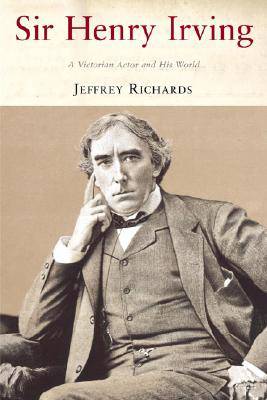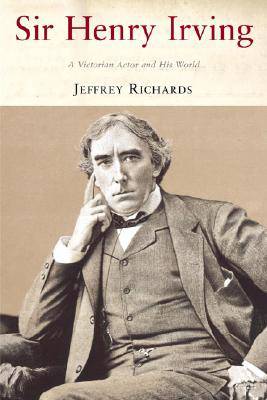
Bedankt voor het vertrouwen het afgelopen jaar! Om jou te bedanken bieden we GRATIS verzending (in België) aan op alles gedurende de hele maand januari.
- Afhalen na 1 uur in een winkel met voorraad
- In januari gratis thuislevering in België
- Ruim aanbod met 7 miljoen producten
Bedankt voor het vertrouwen het afgelopen jaar! Om jou te bedanken bieden we GRATIS verzending (in België) aan op alles gedurende de hele maand januari.
- Afhalen na 1 uur in een winkel met voorraad
- In januari gratis thuislevering in België
- Ruim aanbod met 7 miljoen producten
Zoeken
€ 69,95
+ 139 punten
Omschrijving
Sir Henry Irving was the greatest actor of the Victorian age and was thought of by Gladstone as his greatest contemporary. He transformed the theatre, in Britain and America, from a disreputable and marginal entertainment into a respected, civilising and uplifting art form. Irving's enthusiastic supporters, eager to see his every appearance, ranged from Queen Victoria to working men and housewives. At the Lyceum Theatre from 1878 to 1902 he set new standards in acting, often partnered by Ellen Terry, and in production. In 1895 he became the first actor to receive a knighthood. His tours to America brought a revolution in acting practice to the New World. In Sir Henry Irvine: A Victorian Actor and his World, published to mark the centenary of Irving's death, Jeffrey Richards gives an account not only of Irving himself but also of his impact on the Victorian theatre and on Victorian life as a whole.Â
Specificaties
Betrokkenen
- Auteur(s):
- Uitgeverij:
Inhoud
- Aantal bladzijden:
- 508
- Taal:
- Engels
Eigenschappen
- Productcode (EAN):
- 9781852855918
- Verschijningsdatum:
- 20/01/2007
- Uitvoering:
- Paperback
- Formaat:
- Trade paperback (VS)
- Afmetingen:
- 148 mm x 217 mm
- Gewicht:
- 839 g

Alleen bij Standaard Boekhandel
+ 139 punten op je klantenkaart van Standaard Boekhandel
Beoordelingen
We publiceren alleen reviews die voldoen aan de voorwaarden voor reviews. Bekijk onze voorwaarden voor reviews.









